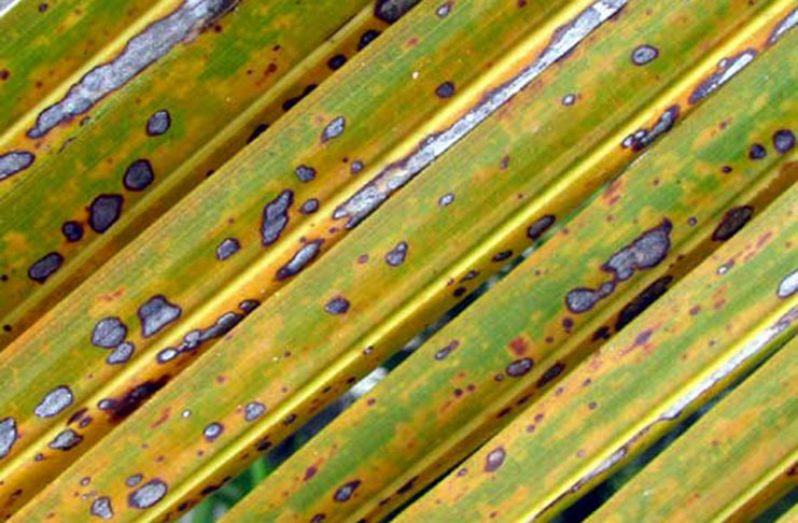IN the light of fears expressed by local farmers, the National Agricultural Research and Extension Institute (NAREI) said that it has taken all necessary precautions regarding the importation of coconut seedlings from Mexico.
At the same time, the authorities are also exploring the importation of seedlings from neighbouring Brazil, initiatives which, according to NAREI head, Dr Oudho Homenauth , will assist expansion of the industry in the short term as well as facilitate plans to set up nurseries here.
According to Dr Homenauth , NAREI is also working with Mexico to produce tissue-cultured plantlets. If this venture is successful, Guyana could become the centre of excellence for coconut seedlings, he said.
Last weekend, this newspaper had reported that farmers and stakeholders in the local coconut industry fear the worst, after a prominent Pomeroon businessman reportedly imported thousands of coconut seedlings which may contain the devastating Lethal Yellowing palm disease.
According to a letter written in the column in another section of the media, one of the country’s large-scale coconut farmers had imported a container load of 10-20,000 seed nuts from Mexico to plant in the Pomeroon.
The writer noted that the importation could cause the “death” of the coconut industry in Guyana, since there is the likelihood of the plants having the disease in at least one per cent of the nuts.
The writer said the disease spreads rapidly and has destroyed entire plantations in Northern Caribbean countries, including Jamaica.
However, reports are that NAREI had conducted a pest risk analysis (PRA) in January this year regarding the planned importation of the coconut planting materials by the farmer.
The report stated that the Mexican authorities, through its regulatory agricultural body, SENISICA, have given assurances that coconut-planting materials destined for Guyana are free of plant diseases and are sourced from nurseries and production sites that are registered and certified by the regulatory body. SENASICA protects the agricultural, aquaculture and livestock resources of quarantine and economic pests and diseases.
The report stated that several ‘phytosanitary’ requirements for importation of coconuts have been established. These include the stipulation that planting materials shall be free of soil, trash, organic matter and pests of quarantine importance. In addition, planting materials shall be treated with a miticide —fungicide — and must also be fumigated before shipping.
The process also requires the importer to produce a valid Phytosanitary Certificate, which must accompany any consignment of coconuts and must contain several declarations, one of which must be that the plants were subjected to inspection by a Plant Quarantine Officer.
The planting materials must be transported in a sealed container, the report stated.
The name ‘Lethal Yellowing” originated from the yellowing and drooping of palm fronds (long leaves), beginning with the lower fronds and advancing up through the crown. The disease is characterised by the dropping of the coconut palms in mature and immature coconut plants, in which the fruit drops from other varieties, a process called ‘shelling.’ In addition, the flower stalks change to a blackish colour, while the palm fronds start to yellow or, in the case of some species, turn greyish-brown.
In addition, the entire crown may fall from the tree, leaving a forlorn ‘telephone pole’ stalk.
An outbreak of disease results in environmental and economic upheaval. However, large-scale crop loss and the resulting lack of income can result in more rural agriculturalists moving to urban areas, thus exacerbating rural poverty.
Coconut is grown in 90 countries globally, mainly in tropical climatic conditions. An estimated 11 million farmers cultivate the crop worldwide.















